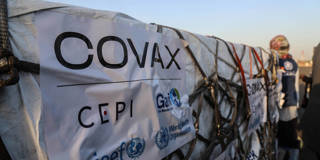As the COVID-19 pandemic enters its third year, millions of people around the world remain in the grip of fear and uncertainty, owing to our collective failure to achieve universal vaccination. Still, three upcoming events offer world leaders a chance to begin to remove this moral stain.
SEOUL – With 124 million new COVID-19 cases worldwide since the start of 2022, and with the COVID-19 virus spreading, mutating, and stalking even the fully vaccinated, the world faces a grim truth: everyone will live in fear until no one lives in fear. That is why world leaders must resolve that 2022 will be the year when we finally bring the pandemic under control.

SEOUL – With 124 million new COVID-19 cases worldwide since the start of 2022, and with the COVID-19 virus spreading, mutating, and stalking even the fully vaccinated, the world faces a grim truth: everyone will live in fear until no one lives in fear. That is why world leaders must resolve that 2022 will be the year when we finally bring the pandemic under control.